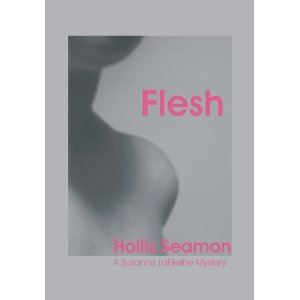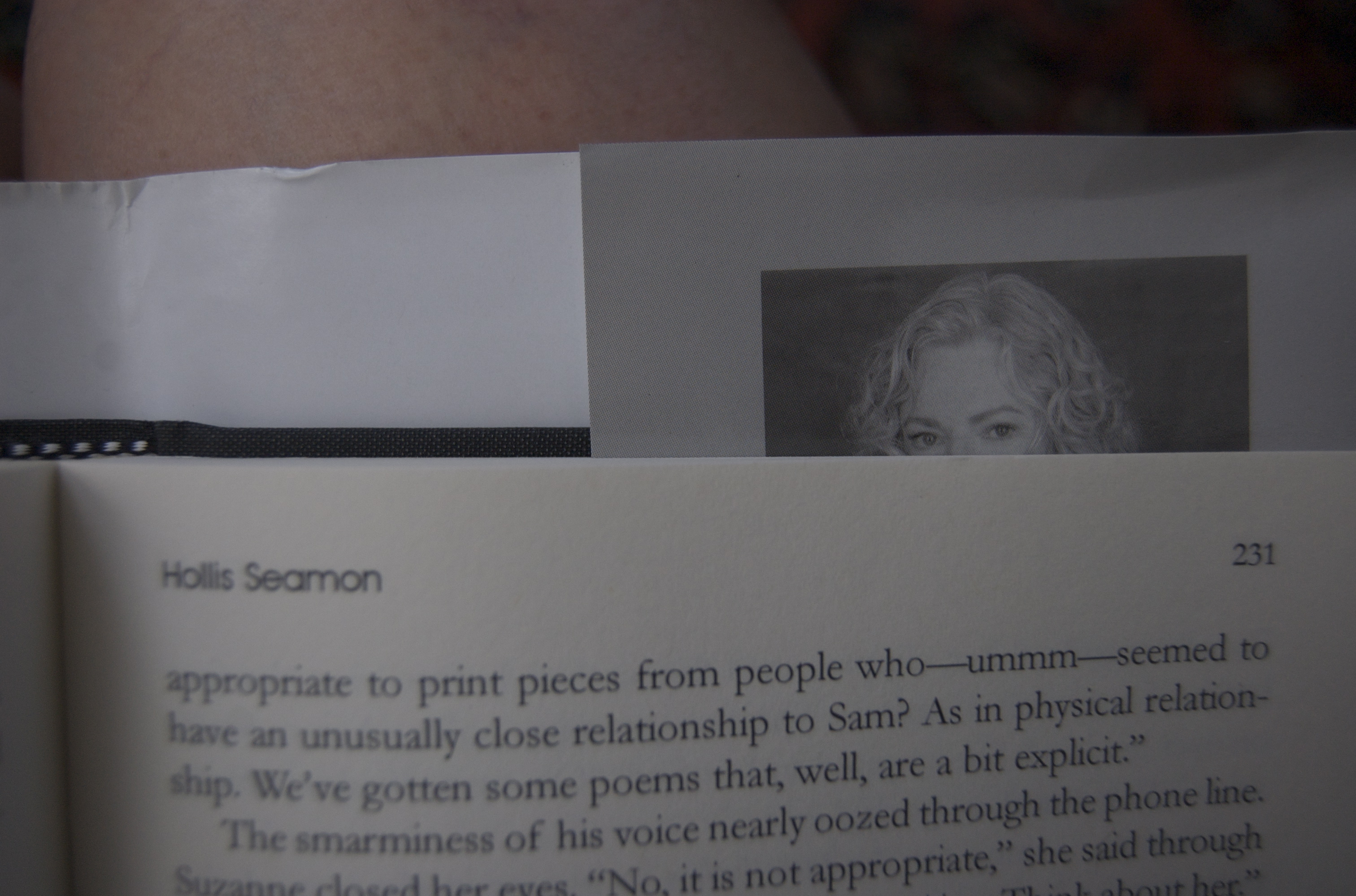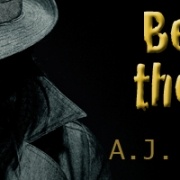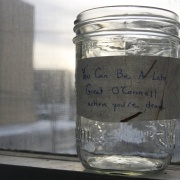 Two weeks ago, we went camping in the Berkshires with a group of friends. Since I’d just graduated, it was the first time I’d been on this camping trip without a book I had to read. So I picked up a book that I’d been meaning to read for a year: Flesh, by Hollis Seamon, who was my mentor during my final semester at grad school.
Two weeks ago, we went camping in the Berkshires with a group of friends. Since I’d just graduated, it was the first time I’d been on this camping trip without a book I had to read. So I picked up a book that I’d been meaning to read for a year: Flesh, by Hollis Seamon, who was my mentor during my final semester at grad school.
Now, as a student, I’ve worked with four authors as mentors, and I’ve worked with many other authors during the residencies but, to my shame, I haven’t read all their books. I’ve bought many, many of those books, which is probably half the battle, since professors need to make money and eat and whatever else it is that published authors do. I’ve had the professors sign those books, or my Kindle, if I bought the electronic edition. I have two or three shelves in a bookcase dedicated to profs’ books, but I’ve just not been able to read them. So I thought I’d start with the books written by my mentors and move on from there. Because Hollis spent so much time on my own novel, I decided to start with hers.
I loved it. And I’m not just saying this because Hollis held my hand as I struggled to end my novel this spring. Flesh is billed as a mystery, and it is, sort of. There is a murder at the beginning, there’s a list of suspects and a cop and a protagonist who becomes an unlikely sleuth. But more than that, it’s a character-driven novel featuring Suzanne Brown a.k.a. Suzanne LaFleshe, “the sexiest fat person in New York.”
It is Suzanne, more than the suspense, that kept me reading voraciously through to the end. “Voracious,” by the way, is a word of which Suzanne would approve. She is a woman of many intriguing appetites. She loves food, and makes desserts like key lime pie in the middle of January, just for the hell of it. She loves sex, and leaves her door unlocked so that her many lovers can drop in for a tryst. She loves academia, and is struggling to complete a dissertation on cannibalism in English literature.
The themes of fat and food and cannibalism and hunger are explored throughout the novel. And if that sounds grisly, it can be, sometimes. But the symbolic theme of hunger was fascinating to me. And the fact that Hollis writes with a wicked sense of humor just made the whole thing even better.
There is some tragedy associated with this book, and I don’t mean the murder that kicks off the plot. As soon as Flesh came out in 2005, the small press that published it went out of business. So although I hear rumors of other Suzanne LaFleshe manuscripts, there will be no more Suzanne LaFleshe books, and that is a sadness.
The strangest thing about reading a book written by your most recent mentor is what happens when you’re sitting in a camp chair for hours and the dust jacket starts riding up on the book:
Next up will be a novel by Rachel Basch, when I finish reading that.




I just discovered Flesh by Hollis Seamon in your review. My own novel with the same title became a kindle book last week. I intended my novel as literature, not pulp fiction, but the marketing is more science fiction/horror than Hitchcock-psychological. I posted the genesis of my FLESH novel on my blog today. http://www.writingasaprofession.wordpress.com
You can get the link to the Amazon book description on the blog site. I trust that it will not offend the taste of the Hollis Seamon book.
Hi! I think there’s more than enough room in the world for two books of the same name. Congratulations on your publication and good luck with your novel!
LOVE the photo of Hollis! And AJ, I love your review! I posted the link under my own review. 🙂
Thank you. Your review was incredibly comprehensive, by the way. I’m very impressed. It was actually your blog that inspired me to start attempting book reviews here.
Ha! I love how her face is sneaking up on you
Or of “Nine Innings.”
🙂
Just think. Someday, some MFA candidate/recent graduate will be blogging a review of DRAG.
Or of The Screaming Pterodactyl Blueprint.